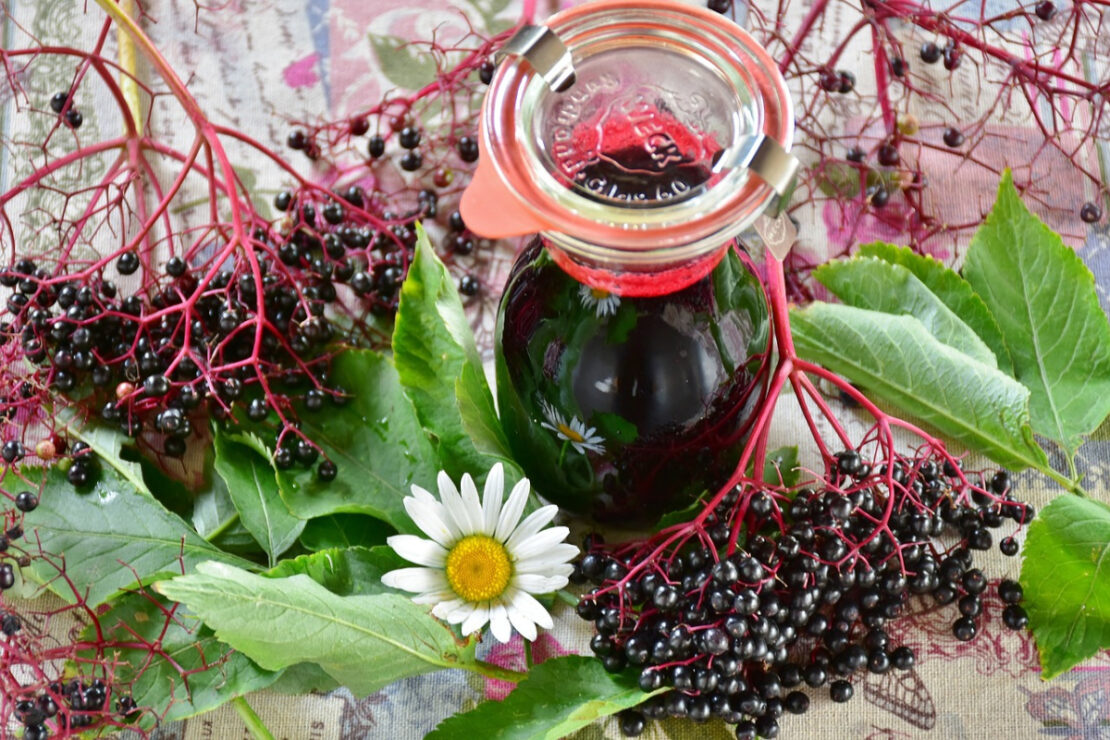
Soothing Herbal Cough Syrup with Elderberry, Elecampane, & Licorice
This herbal cough syrup recipe features a lovely and effective blend of elder (Sambucus spp.) berry, elecampane (Inula helenium) root, and licorice (Glycyrrhiza glabra) root, among other herbs. This recipe is a particularly good fit for dry coughs that need soothing or that contain stuck mucus that needs to be expelled without further irritation.
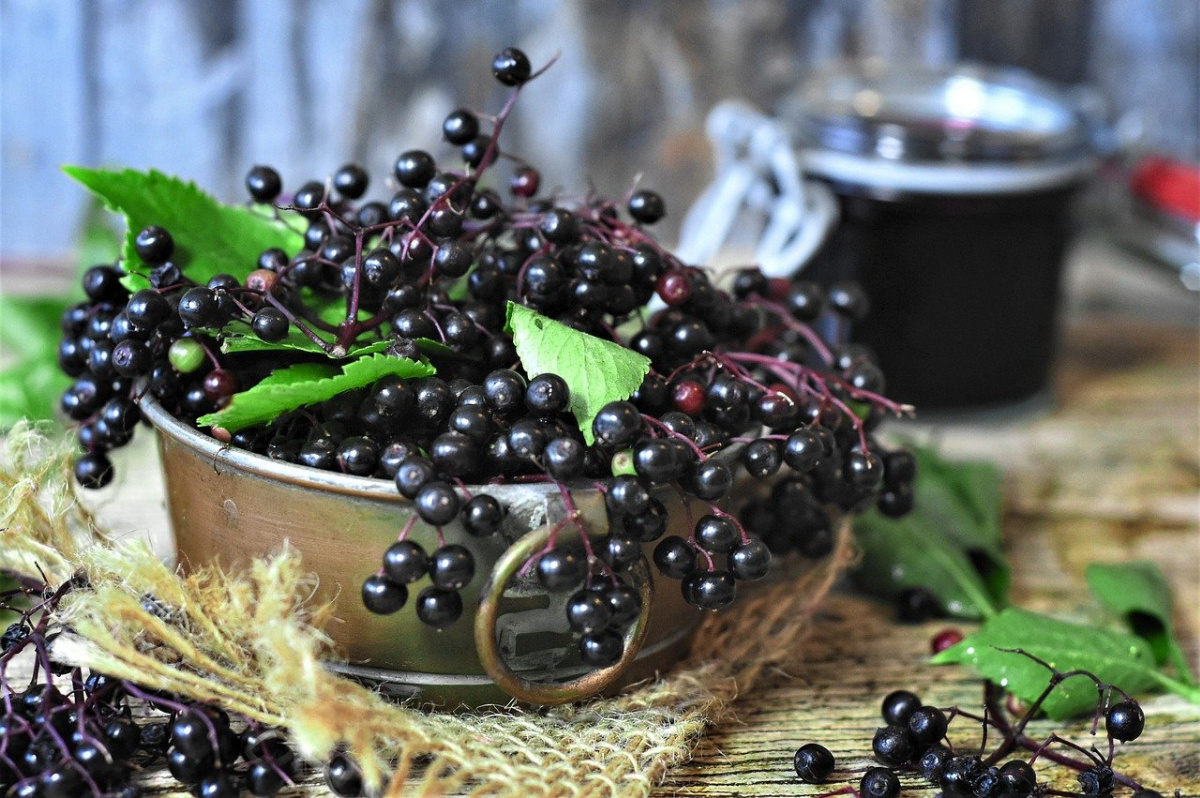
Elder (Sambucus spp.) berries
Elder (Sambucus spp.) berres can be used to make a delicious herbal cough syrup that is perfect for the winter months when the flu virus and other viruses abound.
Elder is referred to time and again as “the medicine chest for the country people,” alluding to its wide-ranging medicinal actions and ready availability. Elderflower and elderberry are both exceptional allies during colds, flu, and respiratory infections due to their diaphoretic and antiviral actions. Taken at onset, elderberry can reduce the duration of cold/flu because it interferes with virus replication, and strengthens cell walls to inhibit viral penetration (Hoffmann, 2003).
(Herbal Academy, n.d.a.)
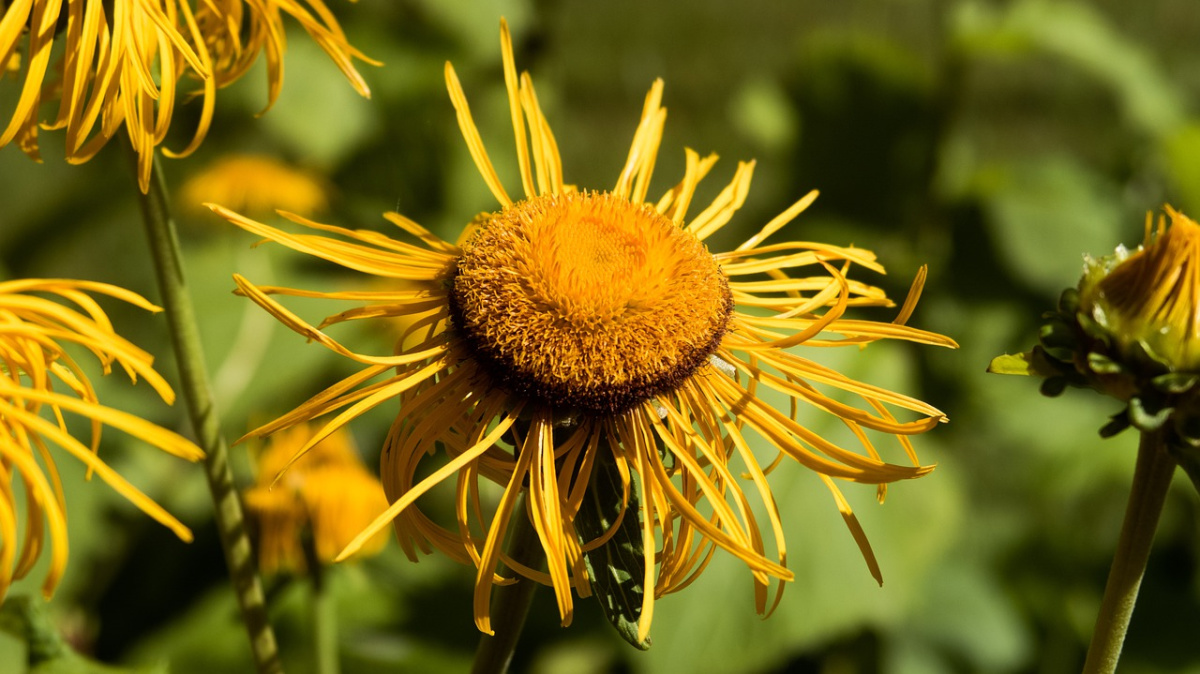
Elecampane (Inula helenium) Root
The roots of elecampane, a warming, expectorant herb, have long been used to support the respiratory system, which makes them a fabulous addition to an herbal cough syrup.
Elecampane is warming and clearing to the lower respiratory system, effectively expelling congestion and stuck energy. In addition to being an excellent expectorant, it also soothes the tissue irritation and inflammation that results from coughing. Elecampane’s ability to move congestion is also helpful in the digestive system. The bitter principle associated with its volatile oils stimulates digestion and appetite (Hoffmann, 2003), helping to clear damp congestion and resolve poor digestion.
(Herbal Academy, n.d.b.)
Licorice (Glycyrrhiza glabra) Root
Licorice is included in this herbal cough syrup recipe for more than its sweet flavor!
Licorice is a sweet, neutral, and moist root that restores, relaxes, and softens. Licorice contains polysaccharides that contribute to its soothing, demulcent quality, and is ideal for afflictions that are hot and dry such as sore throats related to bronchitis, dry coughs, and gastric irritation (e.g. ulcers). In Ayurveda, licorice is considered specific for any inflammation in the mucous membranes throughout the body (Buhner, 2013). As an antispasmodic, licorice relieves painful, unproductive coughing, while its relaxing expectorant action helps to express viscous, congestive mucus from the lungs.
(Herbal Academy, n.d.c.)
Soothing Herbal Cough Syrup
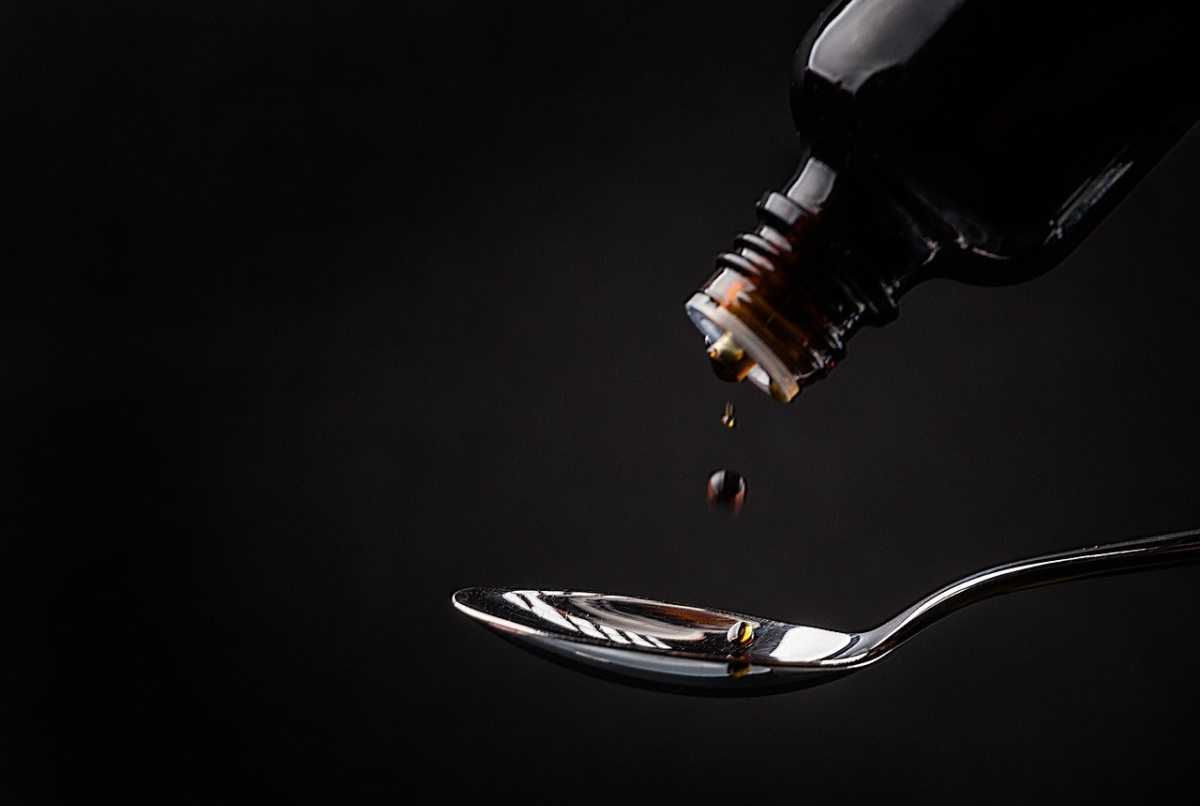
Mixing a decoction with honey or sugar helps to thicken and preserve the decoction. This increases the shelf life of the decoction and often creates a soothing application that benefits situations such as sore throat, cough, dry irritated tissues, and digestive issues. The added sweetener can also help to increase the palatability of some herbs. Many folks, including children, find syrups to be delicious! Yield: 8 ounces.
Soothing Herbal Cough Syrup
In Closing,
Once you have the basic herbal cough syrup recipe under your belt, you can begin to experiment with flavor and herb combinations to best suit your needs. Here are some additional simple herbal syrup recipes for you to try:
Elderberry Cough Syrup
Ginger Syrup
Grape Syrup
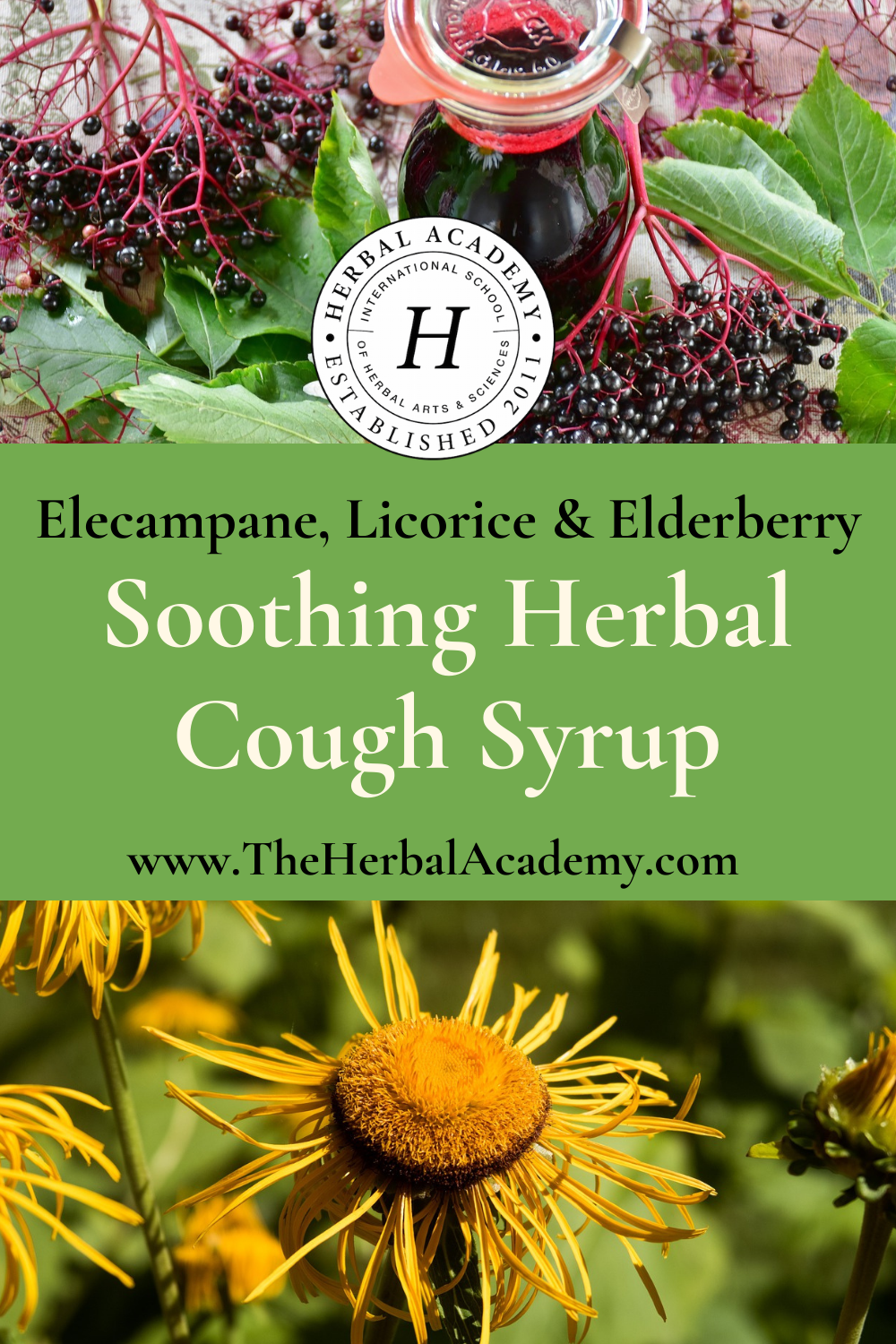
REFERENCES
Groves, Maria. (2016). Body into balance, an herbal guide to holistic self-care. North Adams, MA: Storey Publishing.
Herbal Academy. (n.d.). Elder monograph. The Herbarium. Retrieved from https://herbarium.theherbalacademy.com/monographs/#/monograph/1005
Herbal Academy. (n.d.). Elecampane monograph. The Herbarium. Retrieved from https://herbarium.theherbalacademy.com/monographs/#/monograph/3039
Herbal Academy. (n.d.). Licorice monograph. The Herbarium. Retrieved from https://herbarium.theherbalacademy.com/monographs/#/monograph/1015
Hoffmann, D. (2003). Medical herbalism: The science and practice of herbal medicine. Rochester, VT: Healing Arts.
Justis, A. (2016). How to make a simple syrup [Blog post]. Retrieved from https://theherbalacademy.com/herbal-syrup/









